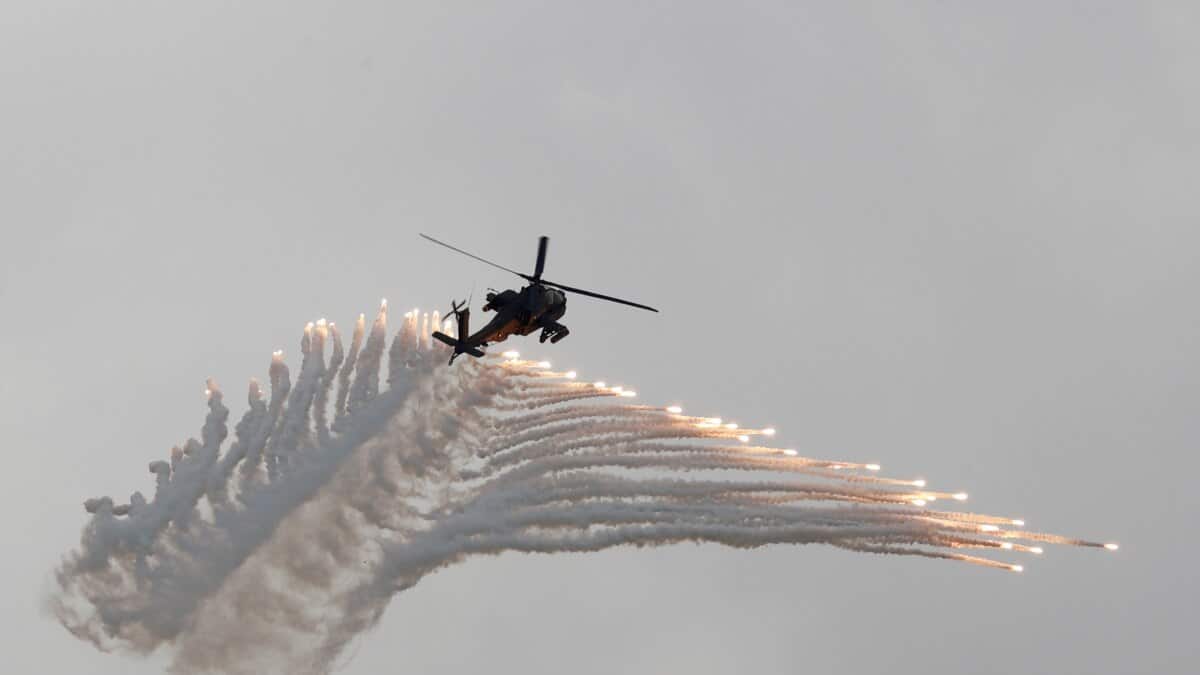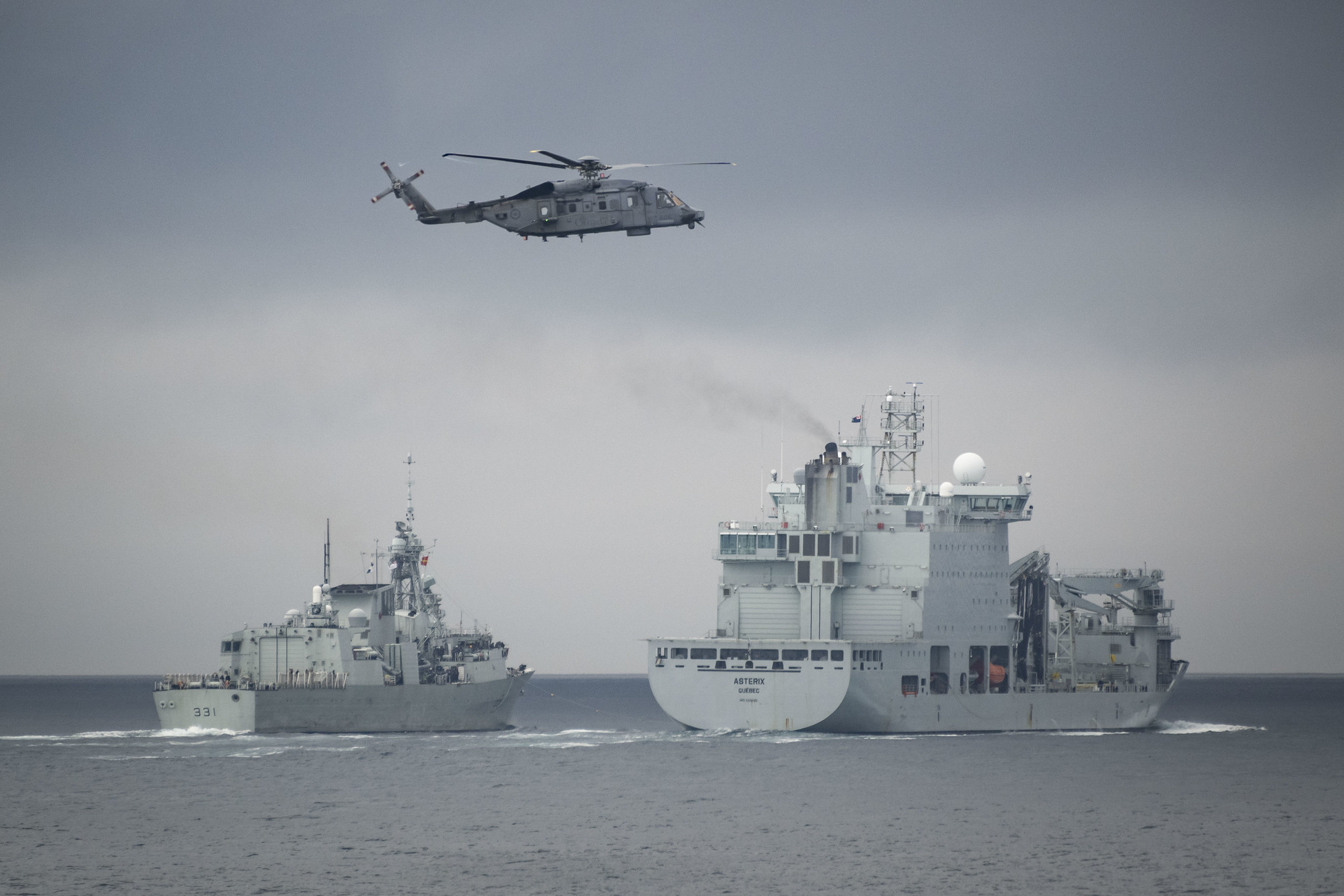A Chinese warplane has shot warning flares at a Canadian military chopper over international waters in the South China Sea. The Canadian Navy said this was a dangerous move that could have caused the helicopter to crash.
Canada’s Defence Minister, Bill Blair, criticised Chinese fighter jets’ second “significantly unsafe” intercept of Canadian aircraft patrolling the Pacific in two weeks on Friday.
Blair stated during a news conference that a Chinese fighter jet flew twice close to a Canadian Cyclone helicopter near the Paracel Islands in the South China Sea, firing flares “directly in front” of the chopper on the second flypast.
According to him, there was “little separation” between the fighter jet and the helicopter.
“The actions of the People’s Republic of China fighter jet were deemed to be significantly unsafe, and we’ll express our concerns to the People’s Republic of China about that.”
The chopper and the HMCS Ottawa were in the South China Sea as part of a series of “freedom of navigation” crossings by the United States and its allies to cement the body’s status as an international waterway.
Beijing claims practically the entire South China Sea, through which trillions of dollars in trade flow each year, and has defied an international court finding that its claim lacks legal foundation.
China’s aggression in the South China Sea, which has resulted in recent skirmishes with Philippine and Vietnamese ships, has been a rising source of anxiety for Washington and its regional allies.
Washington has accused Beijing of executing a “concerted” campaign of dangerous and provocative air force manoeuvres against US military planes flying in international airspace in the region, warning that such activities could ignite unintentional conflict between the two powers.
Chinese fighter planes also buzzed a Canadian Aurora maritime patrol aircraft in mid-October, assisting in the enforcement of UN Security Council sanctions imposed on North Korea in response to its nuclear weapons tests and ballistic missile launches.
Blair had described the Chinese air force’s subsequent actions — coming within 5 metres (15 feet) of the Canadian plane — “dangerous and reckless.”
Beijing responded by accusing the Aurora jet of “illegally intruding into the airspace” of Chiwei island, which is part of the Japan-administered Senkaku Islands, which China claims.
Chinese ‘consider themselves to be at war with the the West
The Canadian Armed Forces (CAF) must also better integrate “information operations” into their attempts to counter misinformation, and must coordinate with “other instruments of national power” during this period of “hybrid warfare.”
The memo — which is not an official plan or policy, but rather “guidance” — was distributed on Wednesday via the military’s internal communications network, and Global News received a copy from a source.
It asks for a radical rethinking of how the CAF views warfare, just as the Liberal government prepares to release its long-awaited defence policy update, and just as the CAF’s top brass warns that they are not prepared to deal with modern challenges.
According to Global News, the guideline document, two adversaries — Russia and China — already believe they are “at war” with Canada and its allies, and that those allies must respond appropriately.
“We must remember that Russia and China do not differentiate between peace and war,” said Gen. Wayne Eyre, Canada’s Chief of the Defence Staff, in the document’s foreword.
“Their goal is not just regime survival, but regime expansion and rewriting the rules-based international order to suit their purposes.” In order to attain these goals, they will employ all components of state power, frequently acting just below the threshold of armed conflict.”
“We must therefore counter the daily actions of our adversaries to deny them incremental gains and to preserve the rules-based international order.”
The memo issued many stern cautions about the importance of considering new “domains” — regions of potential conflict such as space and cybersecurity, as well as battling misinformation — as part of the CAF’s responsibilities.











